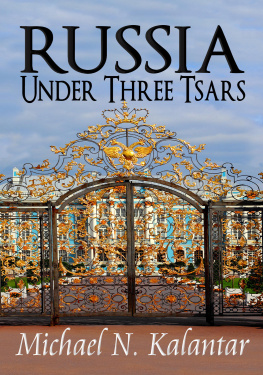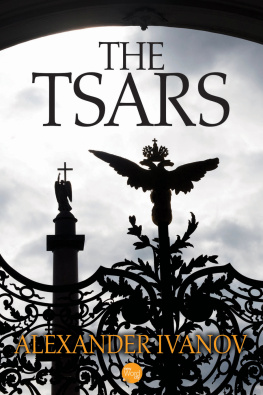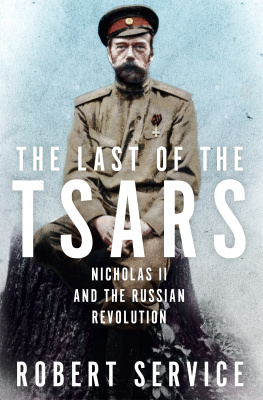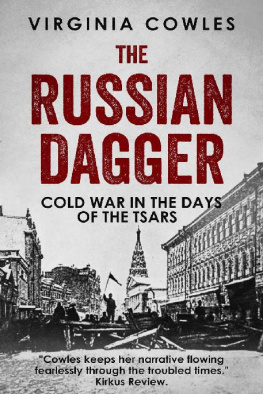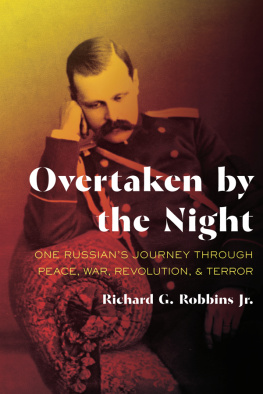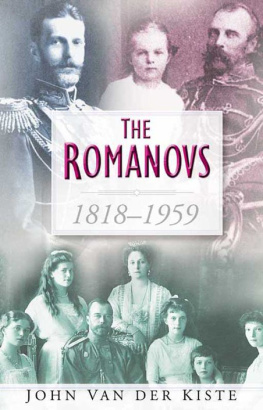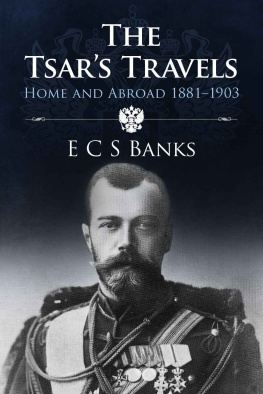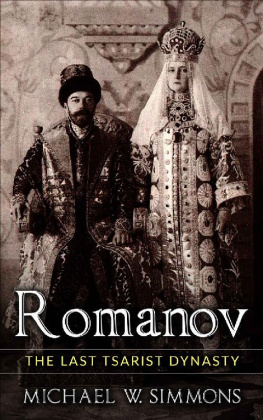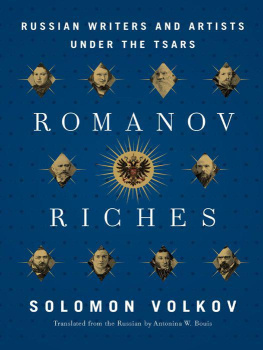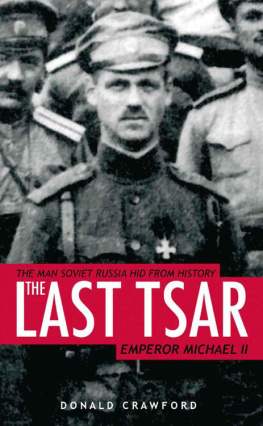RUSSIA UNDER THREE TSARS
Dr. Michael N. Kalantar
With an Introduction by Irene Vartanoff
Appendix: An interview with Leo Tolstoy
Chapter 2
ROAD TO REACTION
Alexander III became Emperor of Russia and immediately embraced reaction. Having taken this step, he never recanted, even to his dying hour. On his very deathbed he instructed his son, Nicholas II: Be sure not to make any concessions, for if you give them a finger, they will bite off the whole hand. Pobedonostsevs rigid doctrine was akin to the intimate feeling within the heart of the Tsar himself.
Alexander III immediately broke off from all the enlightened friends of his father and entrusted power to individuals who knew and shared his own true thoughts. The brilliant Count Loris-Melikov and his talented liberal collaborators Miliutin and Abasa were sent into retirement. The Count was replaced by Count Ignatiev, a hypocrite about whom it has been said that in all his life he never spoke a word of truth. Count Ignatiev had gained notoriety in the East, as ambassador to Constantinople. The peoples of the East do not resent deceit and betrayal, provided these are presented in a pleasant, ingratiating form.
The shattering impression produced by his fathers terrible death determined in many ways the future line of conduct of Alexander III. After the execution of the terroristsa group of fanatics-nihilistsAlexander III threw all the forces of state power into the struggle against revolutionaries and nihilists and against those circles from which the latter mostly cameimmature, hot-headed university students. Academic strata on higher levels, such as professors, teachers and all kinds of intellectuals, were also regarded by the monarch with great suspicion.
He took severe measures intended to limit academic freedom on all levels and tightened censorship over the printed word as a whole. Alexander III obviously shared Pobedonostsevs point of view that education is no guarantee of the peoples happiness. Once the governor of the Tobolsk region, in a report to the Tsar, sadly mentioned the tremendous incidence of illiteracy in the province under his jurisdiction. Alexander III made a notation: And thank God for that!
It is easier, the Tsar probably thought, to govern ignorant than educated citizens. But alas, time was to show that blind slaves can easiest of all be changed into savage rebels.
Basing himselfas did Pobedonostsevon the tenet that the Orthodox Church is the basis of autocracy, the Tsar showed intolerance towards all other faiths and sects: Moslems, Jews, Catholics, Old Believers, etc. Following a program worked out by Pobedonostsev, Alexander III exerted untiring efforts to strengthen the influence of the legitimate church throughout the country. Numberless new places of worship were built everywhere, in the center of Russia, in the north up to the very polar circle, in the south in the impervious mountains of the Caucasus. The number of new monasteries alone reached 153 during the reign of Alexander III. Students, teachers, civil servants, officers and soldiers were all required by law to go to church and partake of Communion.
At the same time a whole network of parochial schools was organized in the hope that the people would thereby become close to the Church as desired. The number of newly-organized institutions of this type reached 31,592.
The future showed what a sad abyss there turned out to be between the planned program and the achieving of its goal. At the critical time of trouble and catastrophe not a single graduate of these educational centers was able to come forth as leader and peacemaker. Apparently other ways, ideals and methods were needed, far removed from those used by Pobedonostsev.
Meanwhile the life of the Russian people, as it developed in the nineteenth century, was basically far from Godless. In this life faith in God was deeply ingrained and the simple Russian people sought God, harboring thoughts of Him in their hearts. That is why even great Russian geniuses like Tolstoy and Dostoyevsky were deeply religious men. This religious exaltation, however, froze under the influence of Pobedonostsevs Church policies.
Nor did the Church alone feel Alexanders iron reactionary band. All aspects of Russian life were subjected to repression and regressive changes. Local governments, schools, the press, courts of law, civil servants, the army, all had to serve the aims of reaction or be silent, as if nonexistent. Even praise of the reforms of Alexander II was forbidden as a sign of inadmissible liberalism!
The epoch of the reign of Alexander III was indeed the most reactionary period in all of Russian history. What sort of a harvest would eventually come from the seeds of reaction sown by such an inexorable hand throughout the country? Few people thought or worried about that at the time. Count D. Tolstoy, one of the Tsars ministers, answered a query on the subject in the following characteristic words: I know, I know! But we are interested in the present. Just let it all last through our own lifetime.
The prediction of the count-minister was correct. Reaction was good for almost a quarter of a centurybut no more. The fruits of Alexanders regime were to be reaped by another monarch: his son.
The memory of his fathers terrifying death made Alexander III ever aware of the dangers to which he himself was constantly exposed. His entourage, especially the police and security agencies, did all that was in their power to increase this fear, thus furthering more than one personal career.
The Tsar often found threatening letters on his desk, or in the pockets of his clothes. Similar letters began to appear in the pockets of his childrens clothes. The idea of seclusion, as sole means of protecting himself from the bombs and bullets of terrorists, was ceaselessly inculcated into the mind of the monarch.
And thus, the capital with all its spacious avenues and squares became hateful to the Tsar because of the gory memories it evoked and he transferred his residence to Gatchina, a town twenty miles from the capital, where his grandfather, Emperor Paul I, had himself sought immunity. Here, at Gatchina, everything had a flavor of a garrison, almost a fortress town. The neatness of the streets, the luxuriant greenery of the huge park, the forbidding walls and fences concealed an all-pervading emptiness and lack of life. There was no one to admire the crystal-clear and quiet waters of the Gatchina lakes except the silent swans and equally silent silhouettes of the palace guards who day and night tirelessly walked in and around the park, protecting the Tsar from the menacing eyes of ill-wishers.
Every trip of the Emperor, be it to the capital, or anywhere else in Russia, involved a series of complex protective measures. Never did the people know the time schedule of the imperial train. Endless files of sentinels stood on both sides of the track along the whole length of the routethey stood with their backs turned to the passing train and allowed no one within shouting distance.
Once, under everybodys eyes, a peasant floating downstream on a raft was shot to death by a guard. He had not been able to stop his raft in time and had drifted under the bridge just as the royal train was passing by.
Painstaking measures were also taken to frustrate any attempt at poisoning the monarch. Provisions for the royal table were bought daily, always in different places, and the dealers never knew for whom the purchases were made. A vast number of cooks and assistants were on call every day, but the same persons never serviced the kitchens two days in succession. The names of those who were to be on duty at any particular time were announced at the last moment and always unexpectedly. At the table, surrounded by his family and closest friends, Alexander III would not touch the food until all others had partaken of the fare with no visible ill-effects.

